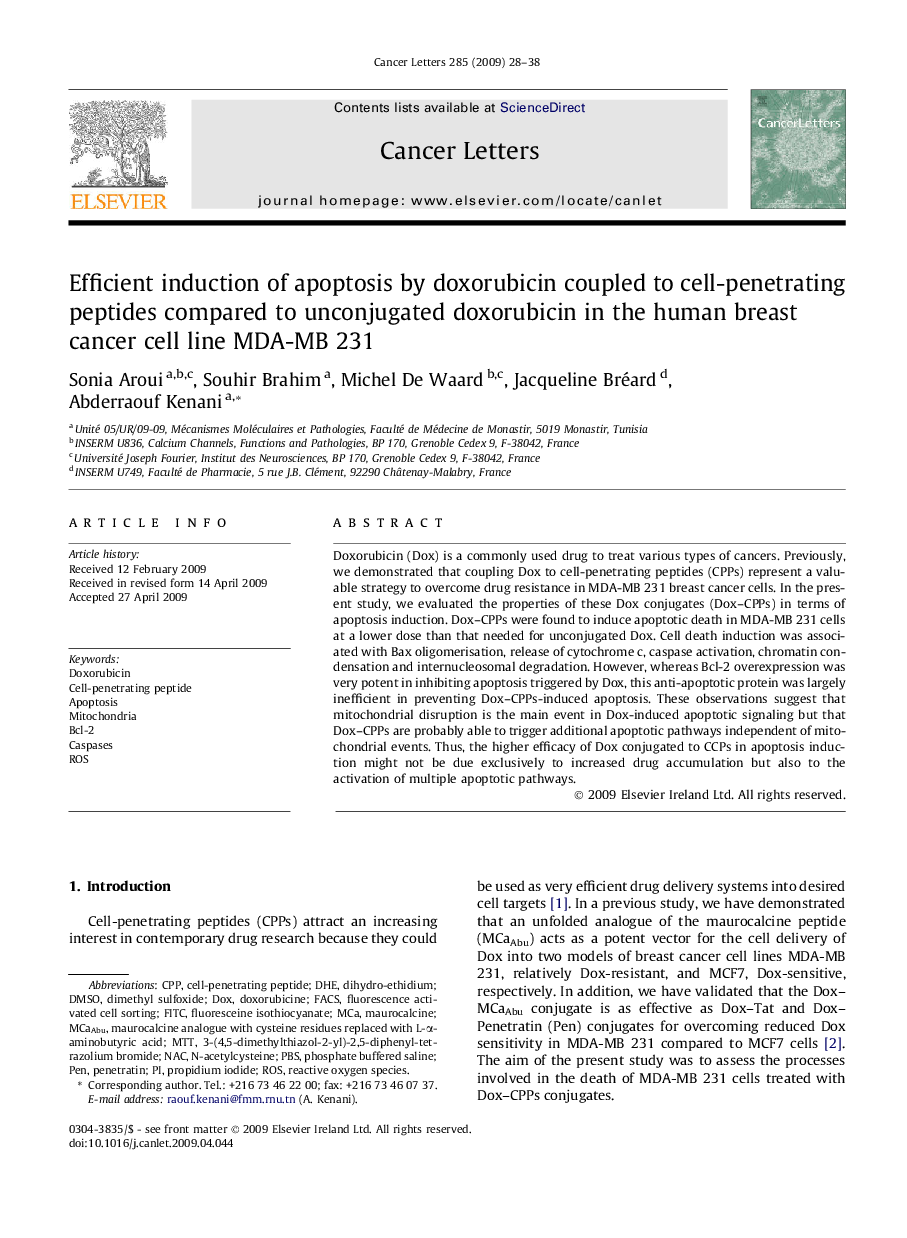| Article ID | Journal | Published Year | Pages | File Type |
|---|---|---|---|---|
| 2116538 | Cancer Letters | 2009 | 11 Pages |
Doxorubicin (Dox) is a commonly used drug to treat various types of cancers. Previously, we demonstrated that coupling Dox to cell-penetrating peptides (CPPs) represent a valuable strategy to overcome drug resistance in MDA-MB 231 breast cancer cells. In the present study, we evaluated the properties of these Dox conjugates (Dox–CPPs) in terms of apoptosis induction. Dox–CPPs were found to induce apoptotic death in MDA-MB 231 cells at a lower dose than that needed for unconjugated Dox. Cell death induction was associated with Bax oligomerisation, release of cytochrome c, caspase activation, chromatin condensation and internucleosomal degradation. However, whereas Bcl-2 overexpression was very potent in inhibiting apoptosis triggered by Dox, this anti-apoptotic protein was largely inefficient in preventing Dox–CPPs-induced apoptosis. These observations suggest that mitochondrial disruption is the main event in Dox-induced apoptotic signaling but that Dox–CPPs are probably able to trigger additional apoptotic pathways independent of mitochondrial events. Thus, the higher efficacy of Dox conjugated to CCPs in apoptosis induction might not be due exclusively to increased drug accumulation but also to the activation of multiple apoptotic pathways.
